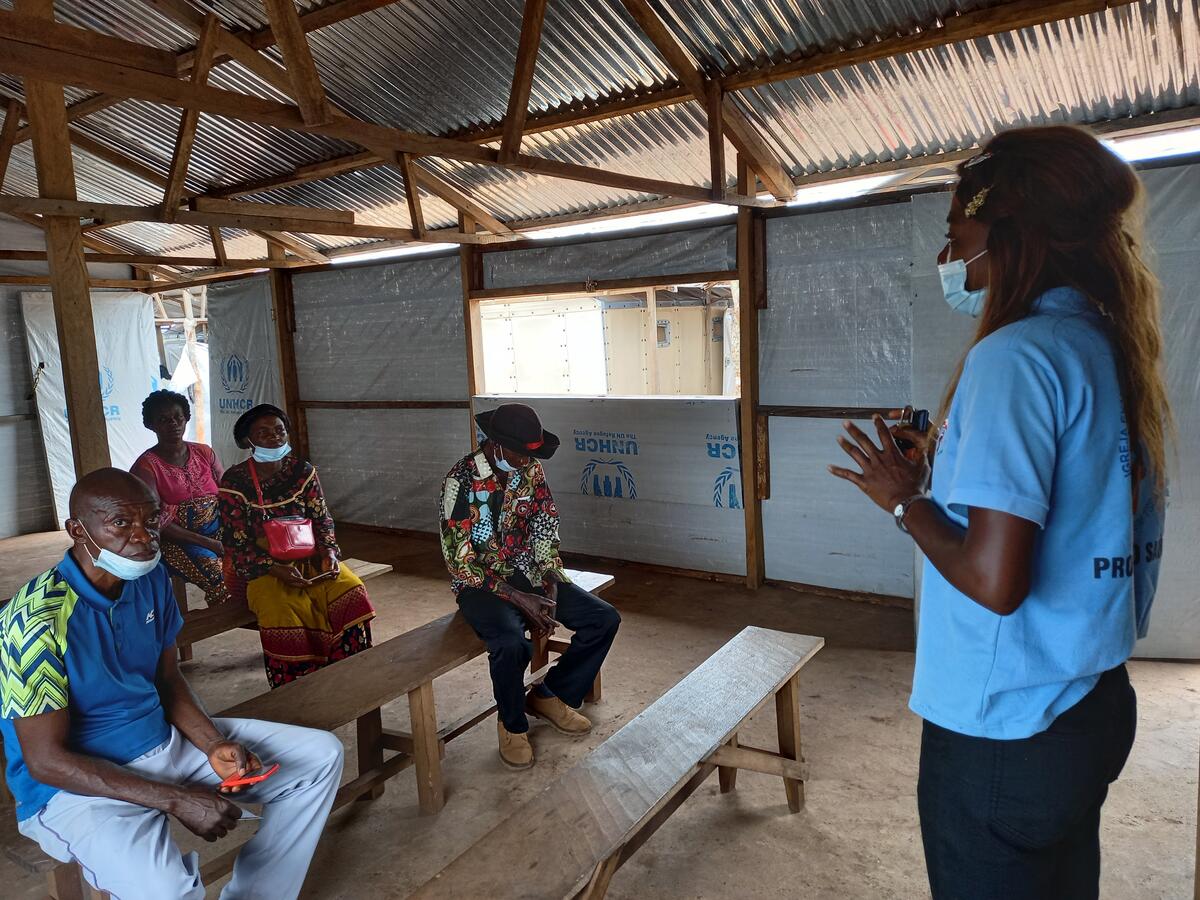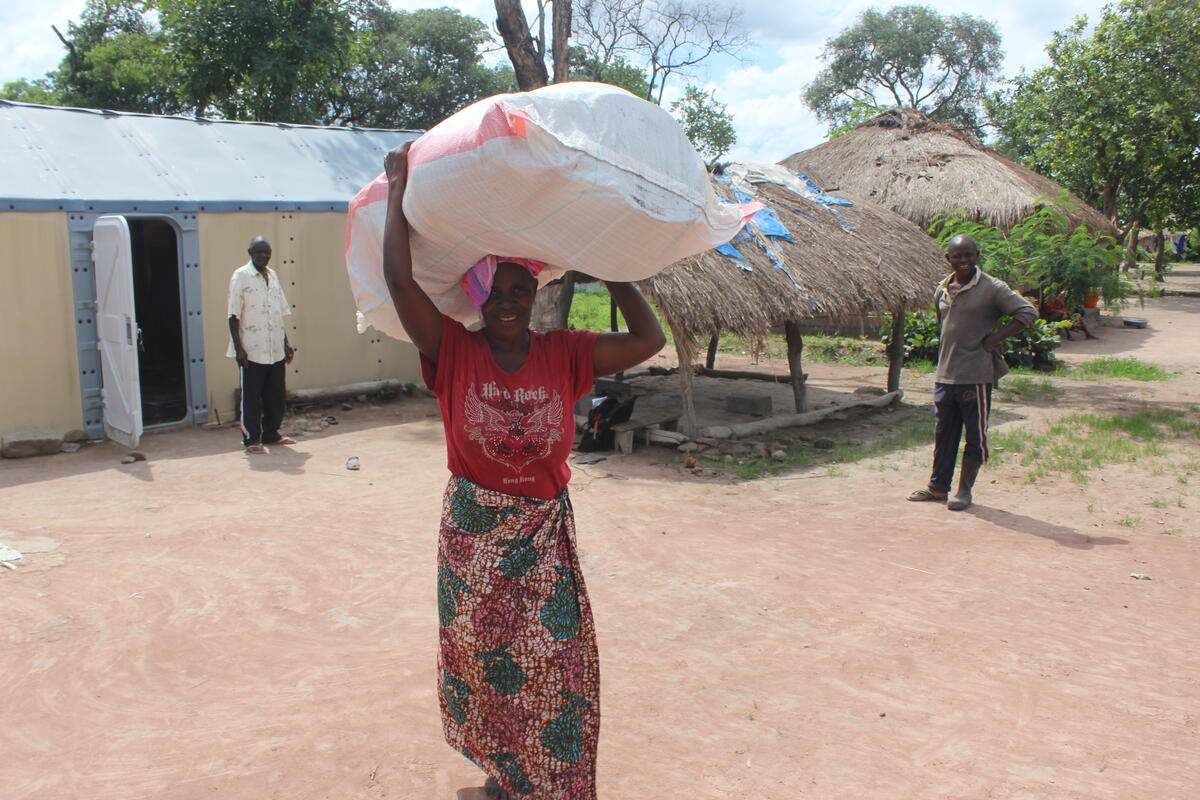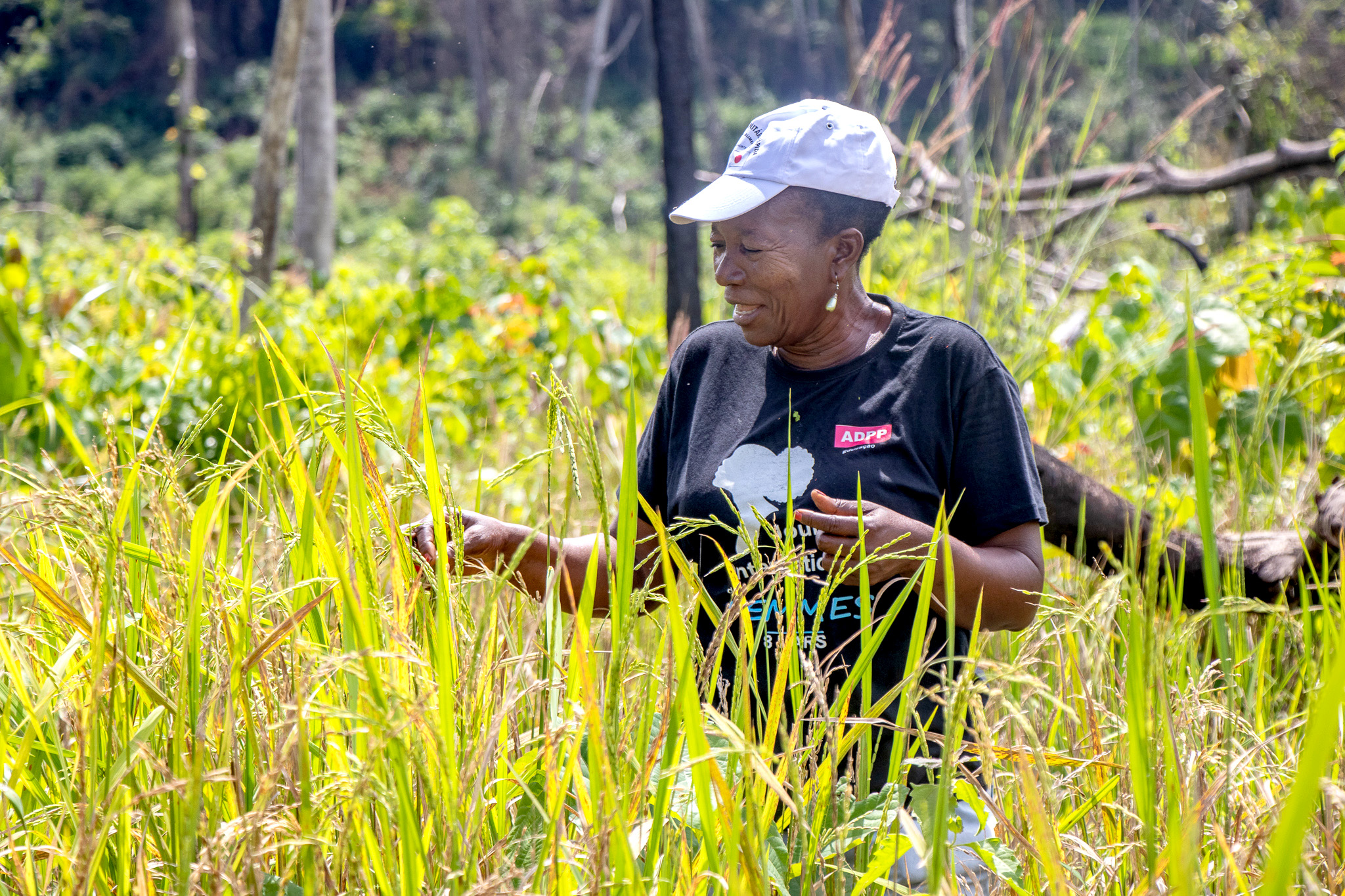Feature: Angolan children at Zambia camp sing praises of Italy
Feature: Angolan children at Zambia camp sing praises of Italy

LUSAKA, Zambia (UNHCR) - Twelve-year-old Angolan refugee Jeraldo Nundu-Jil can't stop singing the praises of Italy. In May, she travelled there as part of a 30-member children's choir from Nangweshi camp in Western Zambia to perform in the "Pavarotti and Friends for Angola" concert.
Six months later, the experience still leaves her smiling. Reminiscing about the trip, she says, "We appreciate the outside world better now than we did before. The trip offered us the opportunity to understand that the world out there is with us. We appreciated the cuisine and dressing of the Italian people. When we visited classrooms, each pupil had his own desk and book."
Jeraldo, who sees herself as an ambassador for other Angolan children, says she is now trying harder to excel in school, where she and other refugee children learn to read, write and count.
Her mother, Camilla Nundu-Jil, adds that the exposure has given Jeraldo new meaning in life. "The children know that education is the only hope when they go back home to Angola."
This sense of hope has infected other refugees at Nangweshi camp, who listen attentively as the children recount their one-month stay in Italy.
The May trip was sponsored by Maestro Luciano Pavarotti and facilitated by UNHCR offices in Lusaka and Rome. The children say they received a warm welcome at the airport and had a remarkable stay at Castello Nouvu Foglian.
Matire Chundimula, 11, remembers Pavarotti as a big man who received them as his own children as soon as they arrived in Italy. Despite linguistic problems, the children managed to communicate with ordinary Italians through an interpreter, and have fond memories of the love and care showered on them by Pavarotti and the Italian people.
Overall, the children say visiting Italy opened their eyes to the outside world and made them realise the importance of peace and harmony. During the concert in Pavarotti's hometown of Modena, they sang beside 30 Italian children and celebrities like Lou Reed, James Brown, Andrea Bocelli, Sting and Grace Jones.
Dr Amelia Ngeve Chimuku, supervisor of education at Nangweshi camp and one of the Angolan refugees who accompanied the children to Italy, describes Pavarotti's gesture as a sign that the world has not forgotten and neglected the humanitarian plight of Angolans.
By October, over Euros 2.9 million had been raised for Angola and Zambia through a wide range of fundraising activities built around the "Pavarotti & Friends" concert - print ads, television and radio spots, magazine inserts, donor mailings and newsletters.
Proceeds from the Modena concert have already started to benefit Angolan refugees in Zambia through programmes to strengthen care and maintenance for them and progressively empower them to be self-sufficient through income generation and agricultural activities. Specific emphasis has been put on issues related to the needs of women, children and adolescents, in areas like health and education.
"I was very happy to see Pavarotti in person. He has done a lot for refugees, we request God to bless him," says Dr Chimuku. "The children who travelled are now a stimulant in school to other children. They are explaining to other children what they saw and demonstrating some games. It is encouraging to see that the children have brought back a culture of more love and peace that is spreading to other children in the camp."
During their stay in Italy, the refugee children underwent singing practice. The knowledge and skills acquired are now being used during school sessions and other major social events in the camp.
After a month in Italy, the children were happy to be back with their family in Nangweshi. But it took a while to adapt themselves back to life in the camp.
"It was difficult for them to readapt to the lifestyle of the camp, especially the diet. Most of them ended up having stomach upsets, but now they have settled down," says Joseph Acher, Project Manager of Christian Outreach Relief and Development (CORD), UNHCR's implementing partner at Nangweshi camp.
Today, the children have resumed their lives in the refugee camp, but their hearts and minds are filled with positive images and ambitions as a result of their trip to Italy.
Paul Mukoma, Zambia's Western Province Deputy Permanent Secretary who accompanied the children to Italy, says of the Italian people, "I appreciate their total concern and sacrifice in giving to the underprivileged. We were able to meet ordinary Italians. Italians have a heart. An Italian is close to the community. If we look beyond Africa, we see that European societies are strongly built around individuals who did great things for their nations, and for those nations beyond."
On behalf of the Zambian government, Mukoma has thanked Pavarotti for his efforts to help Angolan refugees in Zambia. He describes the Maestro's action as a bold step that will forge the bond of unity in Angola, and inspire younger generations.
UNHCR Representative to Zambia, Ahmed Gubartalla, has also expressed appreciation for Pavarotti's gesture. "This experience will go a long way in shaping the future of these children and their contemporaries," he says. "It is a great example of how talent can be put to good use for the benefit of the less fortunate in the world. The humanitarian dimension is of great support to the refugees. We are hopeful that other non-traditional donors will be inspired to do the same."
By Kelvin Shimo
UNHCR Zambia








